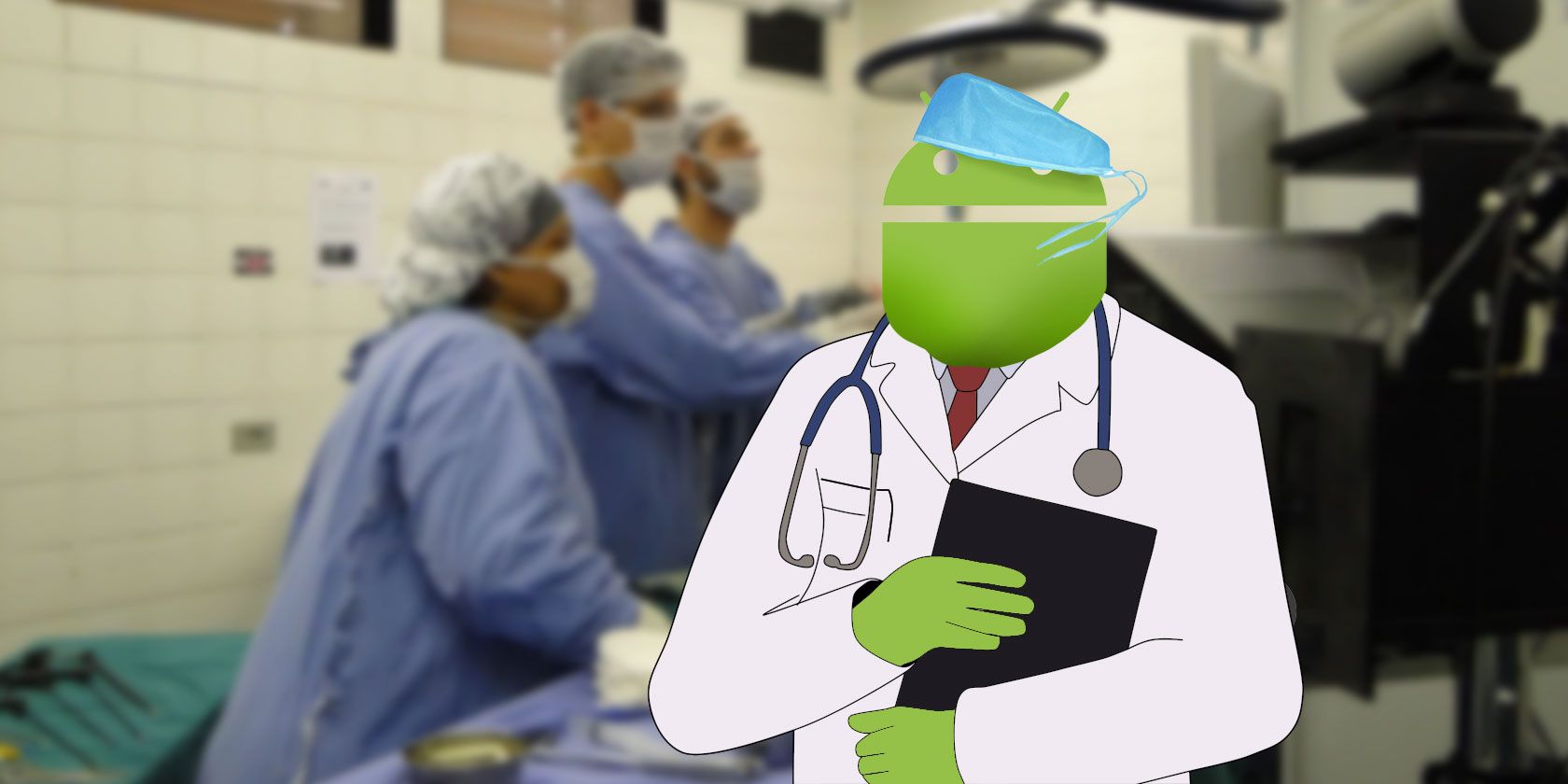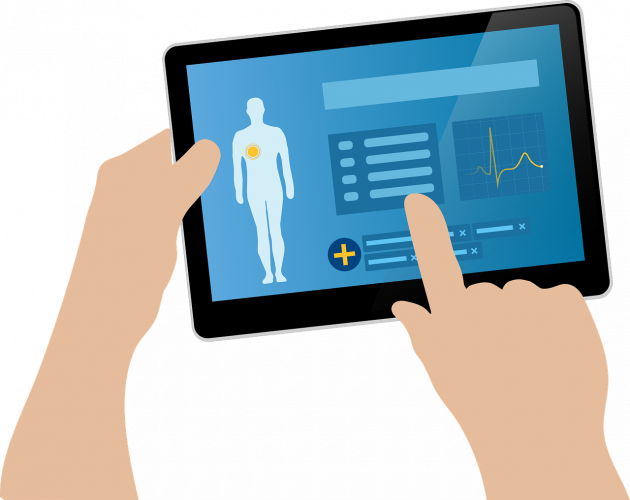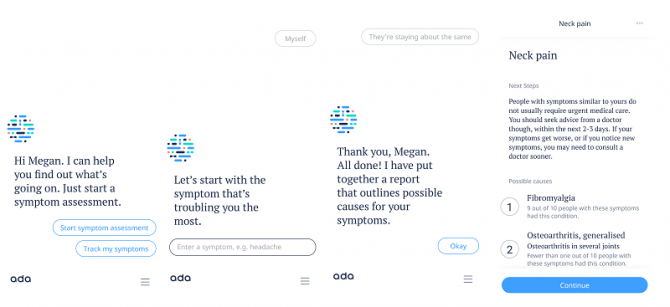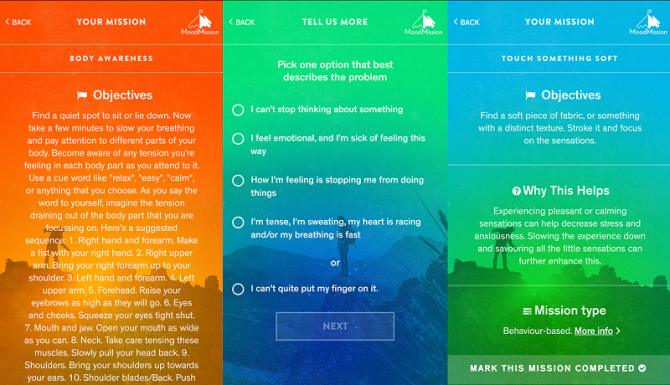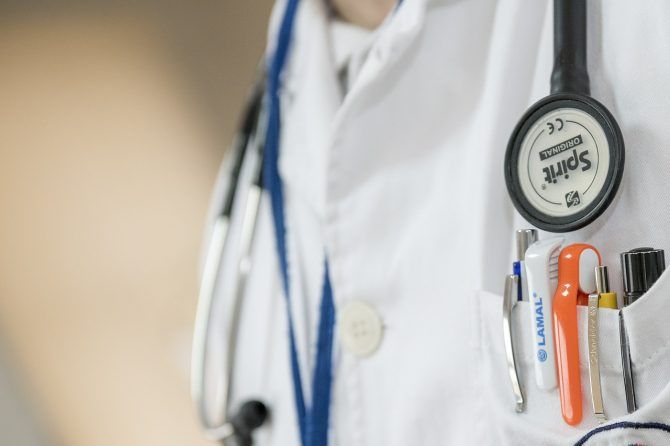Apps are constantly making our lives more convenient. Now you can order food and groceries, become more productive, and even access advanced artificial intelligence assistants while using your smartphone at home.
But are apps going so far as to replace visits to medical professionals such as doctors or psychologists? It seems a few apps are hoping to do this -- with a few fledgling options that are already available to consumers.
Why Would You Choose an App Over a Doctor?
While most people would prefer to receive medical advice straight from a professional who has examined them, this isn't an option for everyone.
There are many reasons you may not want to set up an appointment: you have a fear of doctors, your schedule is too busy, or you would prefer to just use over-the-counter treatment.
Around the world, a vast number of people can't afford healthcare in the face of climbing prices. Even in countries where national health schemes are in place, many of these systems are inundated with requests. Private healthcare is often too costly for the average consumer -- and if you can't seek medical care through the government, you'll often find yourself as one of the many people who don't have adequate access to healthcare services.
This applies both to general physical healthcare, but also the oft-neglected sector of mental healthcare.
In the face of these challenges, medical apps for both general and mental health have surged. No longer are these apps confined to helping you book an appointment or transferring your patient files. Rather, many of these apps seek to help diagnose and offer advice about health issues.
But do they suffice? Here are some of the apps on the market.
Symptom Checker and Medical Information Apps
When it comes to general medical care, there are a number of apps available that give information on the potential causes of your symptoms, as well as advice and resources on certain conditions.
iTriage Health has a a great database of information that users can access, with all content reviewed by Harvard Medical School. This could be why the app's news updates also steer clear of pseudoscience and common misconceptions.
The app has extensive information on common medications, including what to do in the case of an overdose. If you are in an area covered by the app's geo-location information, it can identify relevant specialists for patients.
There are also a range of apps that will give you First Aid advice for emergencies.
Meanwhile Ada Personal Health Companion provides a thorough symptom checker that rivals the likes of even WedMD. The app takes the form of an artificial intelligence bot that tracks and asks questions about your symptoms. Ada then compiles reports on possible conditions with statistical information to help you figure out the likelihood of actually having one of those conditions.
Rather than aiming to replace professional medical help, though, the app's creators want to augment the healthcare experience by making information more accessible to patients.
"This led us to create Ada, a mobile health companion that would help individuals to better understand their health before they even step into their doctor's office. At the same time, Ada facilitates and augments their interactions with healthcare professionals and provides doctors with earlier, more comprehensive health information and clinical decision-making support. Ada can save doctors a significant amount of time, enabling them to spend more time on patient care, prevention and outcomes," the company told MakeUseOf.
"In every assessment, Ada takes all of the individual's information into consideration, including past medical history, symptoms, risk factors and more, and Ada's artificial intelligence (AI) engine and multiple closed feedback loops enable Ada to continuously learn and get smarter the more users engage," they said.
Using the app for myself, it correctly identified fibromyalgia as a likely condition -- but didn't look at some of the diagnosis criteria of doctors (such as tender points and quadrants experiencing pain). When I put in symptoms my partner had experienced before we went to the hospital on two different occasions, it also correctly identified the issues.
That said, it also missed the diagnosis for my nausea on one occasion by listing meningitis as the most likely condition (whereas the nausea was caused by high pain levels and anti-inflammatory painkillers).
One common thread among medical apps, though, is that all of these apps clearly specify that they are not a substitute for professional medical advice and care. Most even offer online consultations with doctors and help you book appointments.
This is likely to make sure that patients can't hold the app creators liable in the event of a misdiagnosis. After all, how many people have misdiagnosed themselves using "Dr. Google"?
Some online medical sources are more reliable than others, but even accurate information can't necessarily keep patients from coming to the worst conclusion.
Download: iTriage Health [No Longer Available]
Download: Ada Personal Health Companion (Free)
Mental Health Apps
While there are various categories of medical apps, mental health apps appear to be especially booming. You'll find dozens of apps on the Play Store that claim to help with anxiety and depression. But do they?
Many apps provide a community for those suffering with mental illness so that they can talk about their issues. One such app is TalkLife, which states that it provides a "safe place where you can talk about anything: mental health, depression, self harm, eating disorders," and more. However most of the users on the app are just average people -- with a high concentration of younger users. This means that some of the advice given isn't constructive or helpful.
In some cases, some advice from average people could do more harm than good. But what about apps that have professional counselors? Apps like 7 Cups link users with trained therapists and counselors for a subscription fee. This fee is considerably lower than the average consultation fee with private psychologists -- and users can get a free trial.
This could be great for users who have limited funds or are unsure about therapy. However, in the case of 7 Cups, even the free trial is locked behind some degree of a paywall because it requires enough credit card funds for the subscription -- even if you just want to trial the service. If someone is already hesitant about therapy, this kind of barrier can be a huge deterrent.
Another approach is the one taken by MoodMission, an app that uses cognitive behavioral therapy (CBT) research to help users manage anxiety and stress with simple tasks and exercises. While the app in no way will cure anxiety and is not a replacement for professional help, it can help manage the condition to some extent.
A common thread that appears among mental health apps is the focus on positivity. This can be useful in managing stress and anxiety, but it doesn't tackle the mental health conditions behind it.
Depression, like any other medical condition, cannot just be wished away with positive thoughts. Furthermore, mental health issues stemming from chemical imbalances in the brain won't be alleviated much, if at all, by these kinds of apps.
At the same time, finding depression support groups online and through apps can help a person feel less alone.
Download: TalkLife - You're Not Alone (Free)
Download: 7 Cups: Anxiety & Stress Chat (Free)
Download: MoodMission (Free)
Other Medical Apps
Medical apps for smartphones aren't only limited to general and mental health -- there are apps that help with physiotherapy, pain management, cardiac health, and fitness. Many of these apps aim to provide supplementary health advice meant to be used in conjunction with professional help (with the exception of many fitness apps).
For someone looking for some stretches for muscle pain, using apps can be a great solution. After all, if you just have some minor neck stiffness, you don't necessarily need to see a physiotherapist or chiropractor.
Meanwhile fitness apps can teach exercises and workout to those who can't afford to see a personal trainer at the gym. Certain cardiac health apps monitor your activity and provide advice on how to keep your cardiac risk low.
But once again, where professional intervention is needed, the apps don't cut it. No physiotherapy app is going to deliver trigger point therapy.
What Do Doctors Have to Say About These Apps?
While these apps can help doctors and patients to some degree, they also raise concerns for medical professionals.
"It's people's natural tendency to assume the worst. If you offer me symptoms, and I give you a list of twenty possible diagnoses and number 20 is cancer -- that's all you're going to worry about," Dr. Brandon Purves told MakeUseOf. "I feel this is the 'Dr. Google' effect all over again."
He adds that an app will only have limited information to work on. "All an app can do is analyze your symptoms. We call it the subjective examination. You put in your symptoms as you experience them and the app will then analyze against a database," he said.
However, doctors also rely on objective examination through physical exams, blood tests, and other medical tests. Dr. Purves noted that an app can't do that. This can be especially problematic in complicated cases. For example, a heart attack may not have the same symptoms in a patient with diabetes versus other patients. For a diabetic patient, sometimes heart attack symptoms are absent except for body weakness -- in which case an examination by a professional would be the only way to diagnose it.
"All these apps can do is offer advice. It's up to the patient to make a decision whether to act on that advice. By all means, they may point a patient in the correct direction, and equally, they may be totally off the mark," he said. "My original point holds, these apps only look at the subjective (and rely on patient feedback on the app) -- you still need a doctor to do an examination, run tests, and ultimately treat you. They may have uses, but it will be limited."
Will These Apps Replace Your Doctor?
While these apps are making healthcare and treatment information much more accessible to the general population, they haven't reached the levels of in-person consultations. Artificial intelligence is nowhere near having the skills or problem-solving thought processes of trained medical professionals.
However, when it comes to health worries or treating diagnosed illnesses, these apps can help patients manage their health. Someone with a chronic condition like fibromyalgia can check if a worrying symptom just falls under one of the many features of their disease, while another person with anxiety can find support through app communities.
These apps can also educate patients outside of the vast misinformation that often crops up in Google searches. They can save you repeated trips to your physiotherapist by teaching you stretches and exercises for your specific needs. They can also let you know when you need to seek out professionals who can help you.
But when it comes to serious undiagnosed conditions, or emergency and specialized treatment, your doctors and hospitals remain the go-to resource.
What do you think about the role of apps in making healthcare more accessible? Are they a help or a hindrance? Let us know in the comments below.

